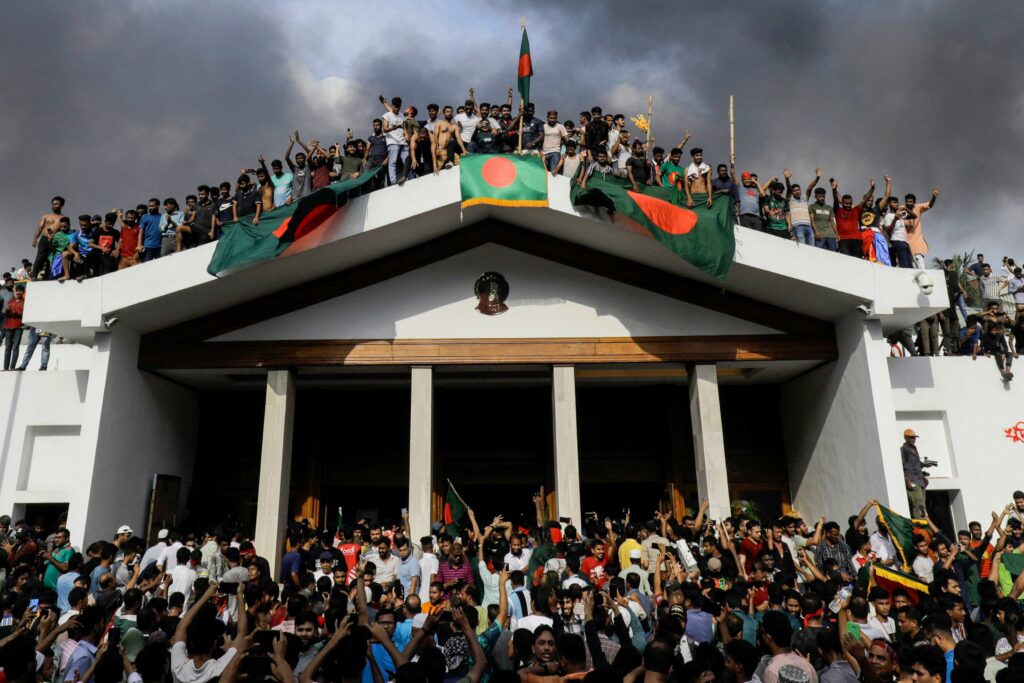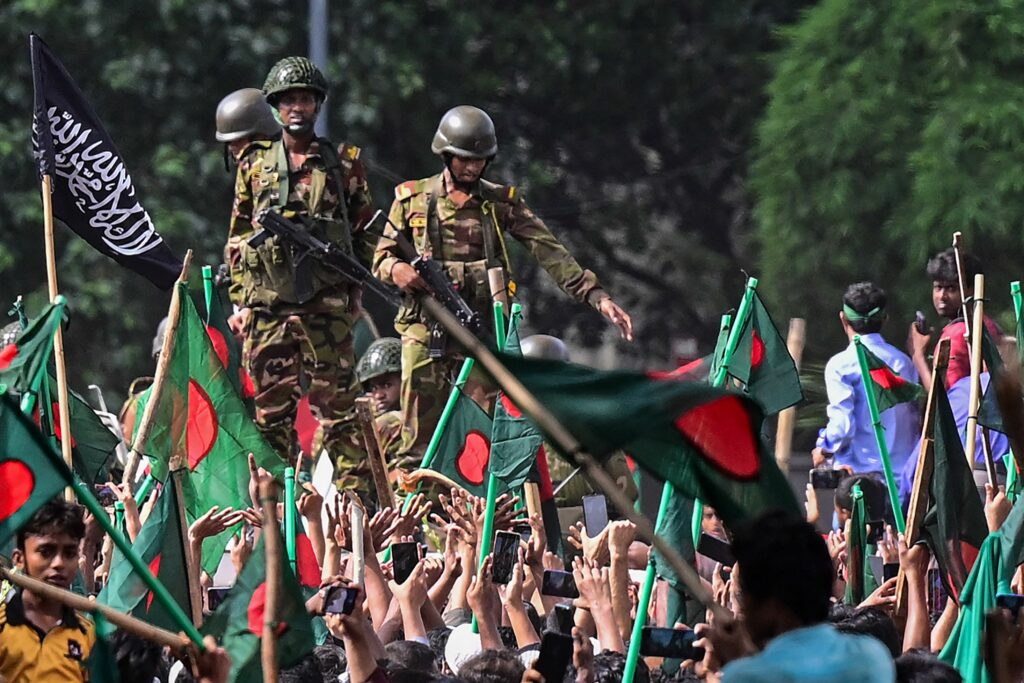DHAKA (AFP) – Bangladeshi Prime Minister Sheikh Hasina’s 15-year rule ended on Monday as she fled more than a month of deadly protests and the military announced it would form an interim government.
Hasina had sought to quell nationwide protests against her government since early July but she fled after a brutal day of unrest on Sunday in which nearly 100 people were killed.
“We want a corruption-free Bangladesh, where everyone would have the right to express their opinion,” said Monirul Islam, a 27-year-old man among thousands in the streets near the prime minister’s palace.
Bangladesh’s army chief General Waker-Uz-Zaman said in a broadcast to the nation on state television Hasina had resigned and the military would form a caretaker government.
“The country has suffered a lot, the economy has been hit, many people have been killed – it is time to stop the violence,” said Waker, dressed in military fatigues, shortly after jubilant crowds stormed and looted Hasina’s residence.

At least 20 people were killed during violence in the Bangladesh capital on Monday, Bacchu Mia, a police inspector at Dhaka Medical College Hospital, told AFP.
Millions of Bangladeshis took to the streets across the South Asian country, many celebrating peacefully.
Jubilant crowds waved flags, some dancing on top of a tank in the streets, before thousands broke through the gates of Hasina’s official residence.
Bangladesh’s Channel 24 broadcast images of crowds running into the compound, waving to the camera as they celebrated, looting furniture and books while others relaxed on beds.
However, mobs also attacked the homes of Hasina’s close allies, witnesses told AFP.
Others torched television stations that had backed her rule, set fire to offices of her Awami League and smashed statues of her father Sheikh Mujibur Rahman, the country’s independence hero.
“The time has come to make them accountable for torture,” said protester Kaza Ahmed. “Sheikh Hasina is responsible for murder.”
Waker said protests should end and vowed that “all the injustices will be addressed”.
The career infantry officer said he would talk to the president to form a caretaker government in the nation of some 170 million people.
It was not immediately clear if he would lead it.
Security forces had supported Hasina’s government throughout the unrest, which began last month against civil service job quotas and then escalated into wider calls for her to stand down.
Waker said he had held talks with the main opposition parties and civil society members but not Hasina’s Awami League.

Hasina, 76, fled the country by helicopter, a source close to the ousted leader told AFP.
A top-level source in neighbouring India said Hasina was “transiting the country but was heading to London”.
Bangladesh’s military said they had shut Dhaka’s international airport on Monday evening, without giving a reason.
However, there were widespread calls by protesters to ensure Hasina’s close allies remained in the country.
Director of the South Asia Institute at the Washington-based Wilson Center Michael Kugelman warned that Hasina’s departure “would leave a major vacuum” and that the country was in “uncharted territory”.
“The coming days are critical, as it moves toward what will hopefully be a peaceful transition,” he said.
“The key now is to move the process along, to create the interim set-up, to ease uncertainty and reduce the risk of more volatility.”
Demonstrations began over the reintroduction of a quota scheme that reserved more than half of all government jobs for certain groups.
The protests escalated despite the scheme being scaled back by Bangladesh’s top court.
At least 94 people were killed on Sunday, the deadliest day of the unrest, with protesters and government supporters battling each other with sticks and knives, and security forces opening fire.
The latest violence took the total number of people killed since protests began in early July to at least 320, according to an AFP tally based on police, government officials and doctors at hospitals.
Soldiers and police in several cases did not intervene to stem Sunday’s protests, unlike during the past month of rallies that repeatedly ended in deadly crackdowns.








